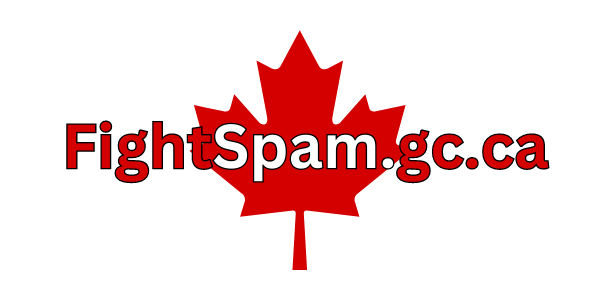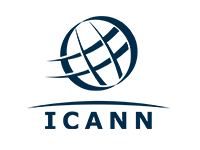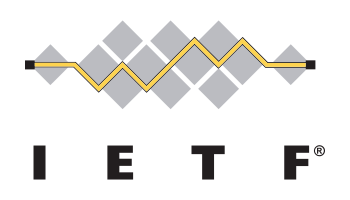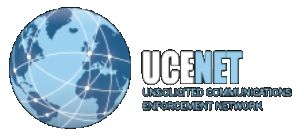2002 marks a year when politicians Sean Connery, Bill Jones & Elizabeth Dole used spam to various effect, Ellen Spertus won $4.26 in her suit against a spammer, Joey McNichol was sued for calling someone a spammer in Australia, and Joel
Hodgell lost a case and had to pay a spammer's legal fees. The FTC determined that unsubscribing from spam did nothing positive nor negative, Bonded Sender, Habeas, and Cloudmark all launched their services.
January 2002
The Direct Marketing Association creates mandatory ground rules "Commercial Solicitations Online Guidelines" for members sending e-mail. DMA VP Jerry Cerasale noted "We view spam as sending a commercial e-mail to someone with whom a marketer has not had any prior business relationship and as being sent to someone who has not asked for the e-mail, these rules are the bottom line, the lowest common denominator." The DMA issues the guidelines to their members in February.
CAUCE questions The DMA's ability and willingness to enforce their own rules. CAUCE is proven right, again, in the fullness of time, when the rules have little effect on DMA members.
A California appellate court overturned a June 2000 decision deeming the CA anti-spam law unconstitutional; spam must have subject line tags. Ferguson vs. Friendfinder & Conru Interactive moves forward. CAUCE applauds the decision.
Ellen Spertus wins $4.26 against Kozmo using California anti-spam law.
AOL accidentally blocks Harvard early admissions emails. Harvard is not currently on any commercial email whitelists.
Bernard Shifman becomes a moron spammer. UPDATE: Bernard Shifman reformed his ways, asked politely, and I removed all relevant content from my site about a year ago – neil schwartzman
TRUST-e launches Trusted Sender email seal program. Within weeks, there are complaints about spam being sent with the seals, and poor compliance actions taken by TRUST-e.
Tom Geller steps down as Director of the SPAMCON Foundation
February 2002
The FTC launched a crackdown on deceptive junk e-mail
Spain began to consider anti-spam legislation
Spam from China became a serious issue
California gubernatorial candidate Bill Jones spams all the way to Canada, is blocked, calls his email 'free speech. Mr. Jones loses the spam, and gubernatorial campaigns.
Millions of AT&T customers' email was slowed due to spam
March 2002
Spam to corporate sites begins to become dire (warning: contains quotes from CAUCE board member Chris Lewis)
A debate organized by the Libertarian (and rabidly anti-anti-spam law) CATO Institute sees participants lambasting the DMA and CATO's proposed approach to spam.
April 2002
The FTC's International Netforce launches a law enforcement effort against deceptive spam and Internet fraud
AOL settles their case against Netvision Audiotext dba Cyber Entertainment Network. Terms of the settlement were not disclosed.
The FTC determines that unsubscribing from spam email does nothing – it does not unsubscribe victims from the email stream, nor does it 'confirm' the email and result in more spam, contrary to popular wisdom.
Lawfirm Morrison and Foerster (aka MoFo) files against self-proclaimed DMA member Etracks under California anti-spam law. The DMA refers the matter to their legal department. CAUCE supports the legal initiative.
Napster founder Jordan Ritter makes noises about an anti-spam tool, Folsom, that eventually becomes Cloudmark
Lotus Notes developer Ray Ozzie makes noises about an anti-spam tool, Groove, that eventually goes nowhere.
FTC files against Rik Covell and Adam Lewis dba BTV Industries; National Communications Team; LO/AD Communications; and Nicholas Loader for bait & switch spam scam.
Brightmail notes a 600% increase in spam volumes over the previous year.
May 2002
Tidbits.com survey finds 31% received more than 100 spam messages per week, 27% receiving 20 or fewer per week, 42% see between 21 and 100 spams per week.
Motorola wins their spam lawsuit against Paging America
Burns-Wyden Can-Spam bill passed out of the Commerce Committee. Burns drops to column in CNET
Australian firm The Which Firm dba T3 Direct sues Joseph (Joey) McNichol for having complained about spam online, resulting in them being listed on the SPEWS DNSBL.
CAUCBE (CAUCE Australia) sets up a legal defense fund)
USENET Death Penalty issued against UK ISP Telewest
New York State attorney general Eliot L. Spitzer files against MonsterHut.com for spamming 750,000 victims.
The European Parliament adopts an opt-in anti-spam directive.
June 2002
Sean Connery spams in support of his possible run for Scottish parliament. Roger Moore becomes CAUCE favourite Bond.
Spamfighting begins to use cloud computing: Cloudmark Spamnet launched, allowing individual users to vote email as spam.
R. James Woolsey, former director of the Central Intelligence Agency, has his name forged in the from line of a spam for sexy screen savers.
Ironport Bonded Sender program launches.
July 2002
Brightmail spots 5,000,000 unique spam runs, 8 times as many as the year previous.
Connecticut State anti-spam law comes into force, joining 21 other U.S. state laws.
9/11 scam spammer Ronnie Scelson arrested, charged with molesting, illegally detaining and raping a teenage girl. Spammers hits an all-time low.
August 2002
Washington state wins their case against Jason Heckel, spammer fined $98,000
Paul Graham, the co-creator of what is now the Yahoo Store, launches first manifestos about baysean spam filters. They work. For a while.
A class-action lawsuit, Terry Gillman v. Sprint Communications is launched in Utah, asserting that Sprint failed to use the subject line tag "ADV." in mailings. The Utah law came into force May 08.
Optix Pro trojan released
Lyris' SparkList service subscription lists hacked, 2,000,000 addresses stolen.
Joel Hodgell loses case filed in Washington State against Daniel Amato, George Amato and Samson Distributing, also known as SDI Labs, in King County District Court's small-claims division in Seattle. Hodgell forced to pay $7,000 for Amato's legal costs.
September 2002
Consumer Lobbyists Telecommunications Research and Action Center accused of spamming. Falsely.
AOL Time Warner, Verizon, the National Cable and Telecommunications Association, and the Direct Marketing Association's lobbying of the U.S. Chamber of Commerce against spam law begins in earnest.
California adopts anti-spam for mobile phones law.
The California attorney general files an anti-spam suit against Paul Willis and Claudia Griffin, and PW Marketing accusing the company of illegally spamming millions of Californians.
October 2002
Verizon settles their lawsuit against Alan Ralsky. Under the terms of the settlement, Ralsky is no longer allowed to mail Verizon customers.
Windows messaging system pop-up spam spotted for the first time
Missouri Attorney General Jay Nixon proposes an anti-spam law
Beast trojan released
The DMA comes out in favour of an anti-spam law. Spammer Thomas "Empire Towers" Cowles voices his support for their approach, which eventually becomes the CAN SPAM act.
The EU opt-in anti-spam directive comes into effect.
November 2002
U.S. Federal, State, and local law enforcers tackle deceptive spam and Internet scams. Again.
FTC files against GM Funding, for failing to honor an unsubscribe request.
MessageLabs says spam volume "drastically increased" during 2002. In January 2002, the company identified approximately one in every 199 UK e-mails as spam. In June, this figure was one in 36. But figures for November suggest a rate of one in eight. September was even worse – at one in five. MessageLabs found that US spam levels have also increased dramatically, with one in every three e-mails currently classified as spam. 42%
of spam emails contain viruses according to Messagelabs.
The FTC charged James R. Haddaway and five others with deceptive spamming.
Senator Elizabeth Dole sued by Ken Pugh for spamming him during her campaign for office.
December 2002
Habeas launches whitelist, invoking trademarked haiku
AOL announces win of $7,000,000 in anti-spam suit against Jay Nelson / CN Productions. The case started in 1998, and was won October 25, 2002.

















